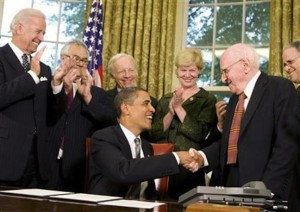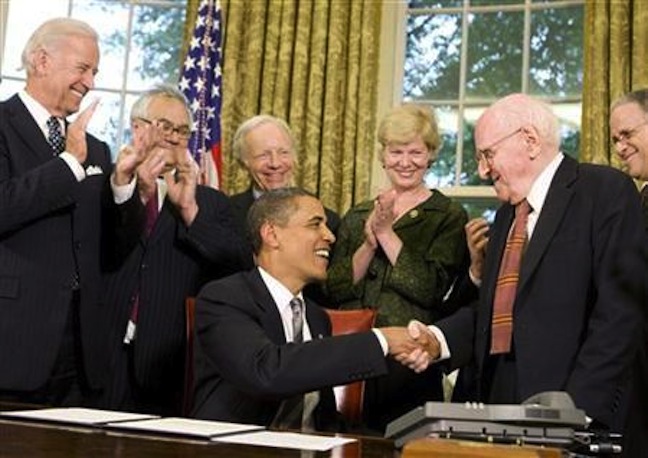LET ME BEGIN with a simple provocation: queer folks—every last one of us—should vote to re-elect President Barack Hussein Obama in 2012. From an electoral standpoint, there’s really no choice for GLBT people this or any other November—that is, if you define “choice” as having more than one viable option. I do not say this with any hint of glee or gratitude. The sad reality of our national politics is that there are only two governing parties for any of us to choose from, and only one of them, the Democratic Party, has shown any inclination, albeit belatedly and often grudgingly, to support policies that advance GLBT rights and equality, while the Republican agenda has typically been to restrict or pre-empt these goals.
Of course, the same thing can be said of other marginalized groups—African-Americans, recent immigrants, women, the poor, and so on. This amounts to a tragic irony at work in our so-called democracy. Taken together, these marginalized groups constitute a significant majority of the American population. (At 50.8 percent, women actually constitute a majority all their own, while all racial and ethnic minorities recently topped fifty percent of live births.) And yet, our potential strength, in terms of numbers, has not translated into real power in the form of political representation. Many of us don’t vote; some of us can’t or are denied the right to vote; and too often, when we do vote, our votes are either discounted in some way or taken for granted.

Then there are those who routinely vote against our collective interests, clinging to the dangerous delusion that the Republican Party, in its current state, has the will or the capacity to be the “big tent” that it pretends to be every election cycle. For our community, the Log Cabin Republicans are at least as detrimental as the closet, trading a space of corrosive invisibility for one of collusive inequality. The truth is that the modern “Party of Lincoln”—a grotesque mutation of its imperfect 19th-century antecedent—will never set us free. And there’s absolutely no evidence to suggest that Mitt Romney and the current GOP leadership will do anything at all to change this situation. Insofar as our lives, loves, and aspirations are concerned, Republicans stand firmly on the wrong side of history. So when it comes to party politics, alas, we have little choice but to cast our lot with the Democrats.*







